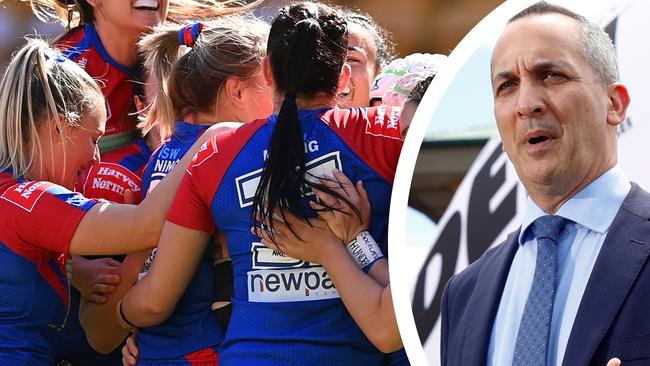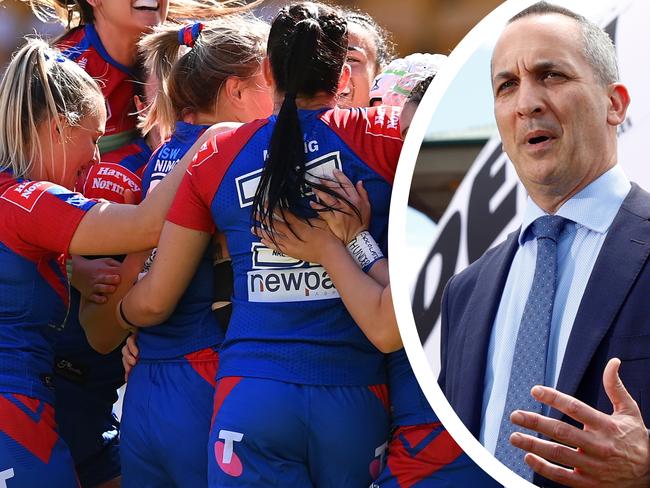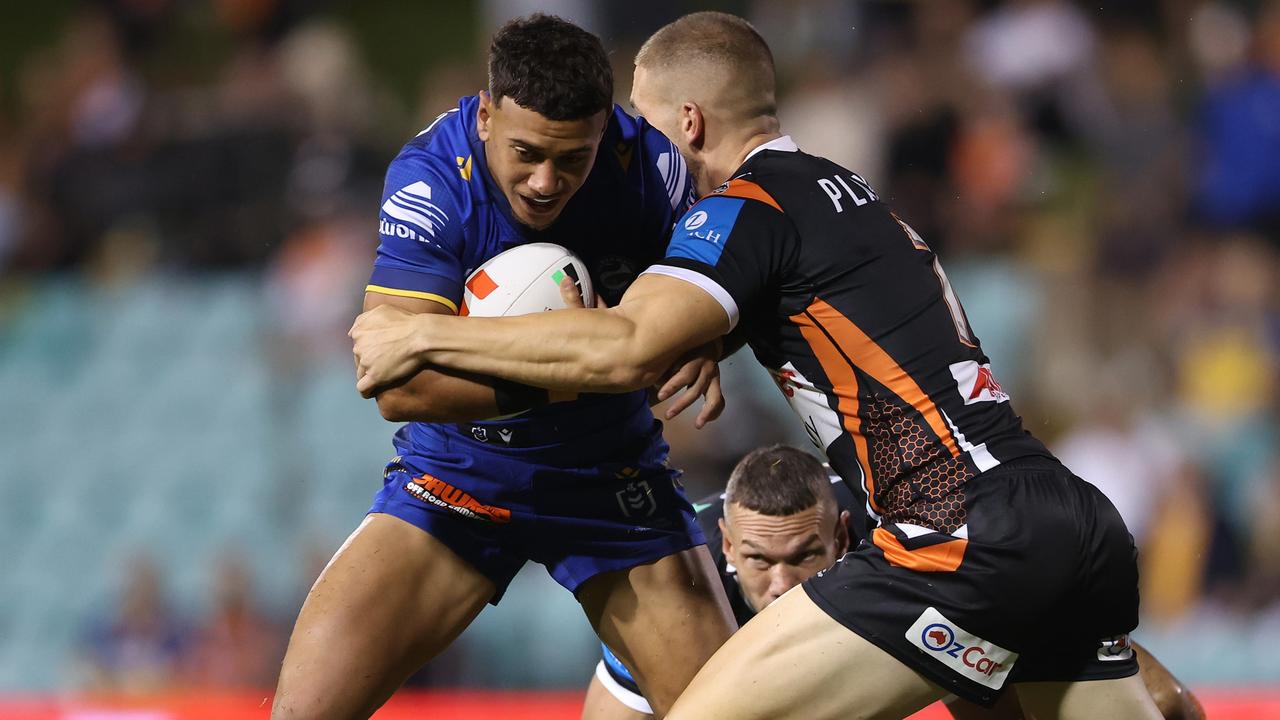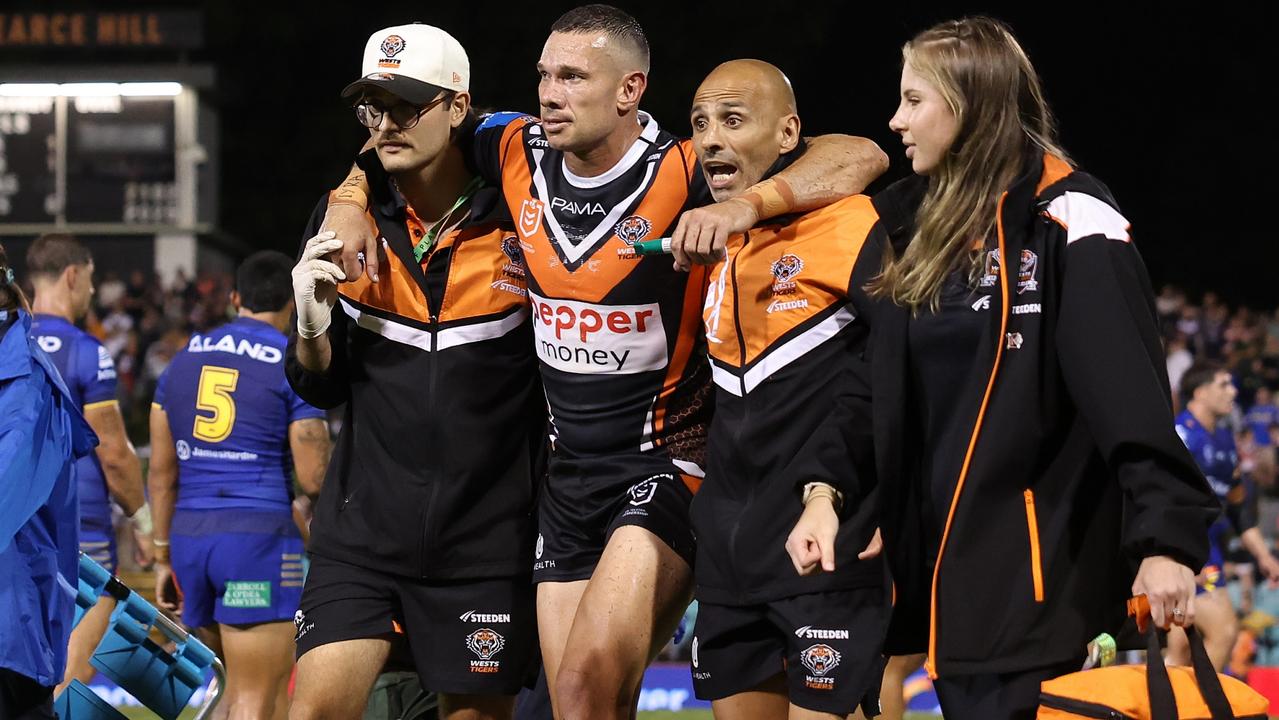Rugby league set to make a call on transgender athletes in the NRLW
A monumental call for the NRL is closing in with the code needing to make a call on transgender athletes - and avoid the backlash that has hit the world of surfing this month.

NRL
Don't miss out on the headlines from NRL. Followed categories will be added to My News.
In case you missed it, surfing icon Bethany Hamilton declared to her 2.1 million followers on Instagram last week that she will refuse to compete at future World Surf League (WSL) events if they allow trans-female athletes to compete in her division.
Surfing, for so long a subculture for rebellious teens, has emerged from a time where women slept in their board bags because they couldn’t attract any sponsorship, to now being a pioneer of world sport.
The sport received deserved praise back in 2018 for becoming the first sport in the US to introduce equal prize money for men and women.
But surfing’s latest announcement – which follows Olympic guidelines – hasn’t pleased everyone.
The NRL have watched it all unfold, which we’ll get to in a moment.
Hamilton posted the video moments after the WSL announced it‘s transgender policy going forward.
The policy states that trans athletes seeking to compete in the women’s division will need to maintain a testosterone level of less than five nmol/L for at least 12 months in order to compete in the women’s division.

Hamilton, well known for surviving a 2003 shark attack in which she lost her left arm, has now competed in the WSL for more than 15 years and has been a continued advocate for surfers of all abilities.
“Is a hormone level an honest and accurate depiction that someone indeed is a male or female? Is it as simple as this?” Hamilton said.
“Who is pushing for this huge change?
“How did whoever decided these hormone rules come to the conclusion that 12 months of testing testosterone make it a fair and legal switch?”
Chatting to a former rugby league great this week, I mentioned Hamilton’s video – which has polarised the sport and of has been liked and supported on her social media by a host of current and former world tour surfers including CJ Hobgood, Josh Kerr, Barton Lynch and Carissa Moore.
“I saw it and immediately thought about rugby league,” he said.
“It will be next to face this decision and it will have huge ramifications for the women’s game.
“I would say it’s the most critical decision the game has faced in years.
“All the work done to get the women’s game to where it is now, the NRL have a huge call to make.
“I dare say, given how hard our women have worked to get to where they are now, we could also have a few of our (NRLW) women reacting like Bethany.”
On the back of a new pay deal for the women’s game this week, that monumental call for the NRL is closing in.
The NRL’s transgender policy is just months away with an intention to announce the policy prior to the new NRLW season, proposed for June.
The NRL understand that, given the combative nature of rugby league, the impact of their decision could have both physical and legal ramifications.
As it stands, an NRL subcommittee has been formed to research the delicate decision and what impact it may have on the women’s game, while assessing data and the findings of other sports, which have already adopted their own policies.
Rugby League has been buying time since last year when ahead of the World Cup the International Rugby League (IRL) decided players who transition from male to female would not be allowed to play in sanctioned international events “until further research is conducted.”
“In the interests of avoiding unnecessary welfare, legal and reputational risk to International Rugby League competitions, and those competing therein, the IRL believes there is a requirement and responsibility to further consult and complete additional research before finalising its policy,” the IRL said.
The IRL’s call came after swimming’s governing body the International Swimming Federation (FINA) announced it is setting up an “open category” to allow transgender athletes to compete in a separate class.
Many of Hamilton’s supporters want to see the same thing in surfing with trans athletes competing in their own category.
Rugby League doesn‘t have that option. Not yet anyway.
The NRL won’t discuss their findings to date, nor which way they are intending to go with their policy.
They won’t declare if they are considering a policy, similar to that of which has been adopted by a range of major sports across the world including women’s soccer, which is testosterone-level focused and can include maintaining and being able to prove a certain level of testosterone exists, or as women’s basketball require, trans-athletes needing to provide a testosterone-suppressing medication.
It’s also unclear if the NRL transgender policy will also be used for junior rugby league.
The hugely complex decision will have a deeply personal and wide-ranging impact.
The NRL are taking their time for a reason.





